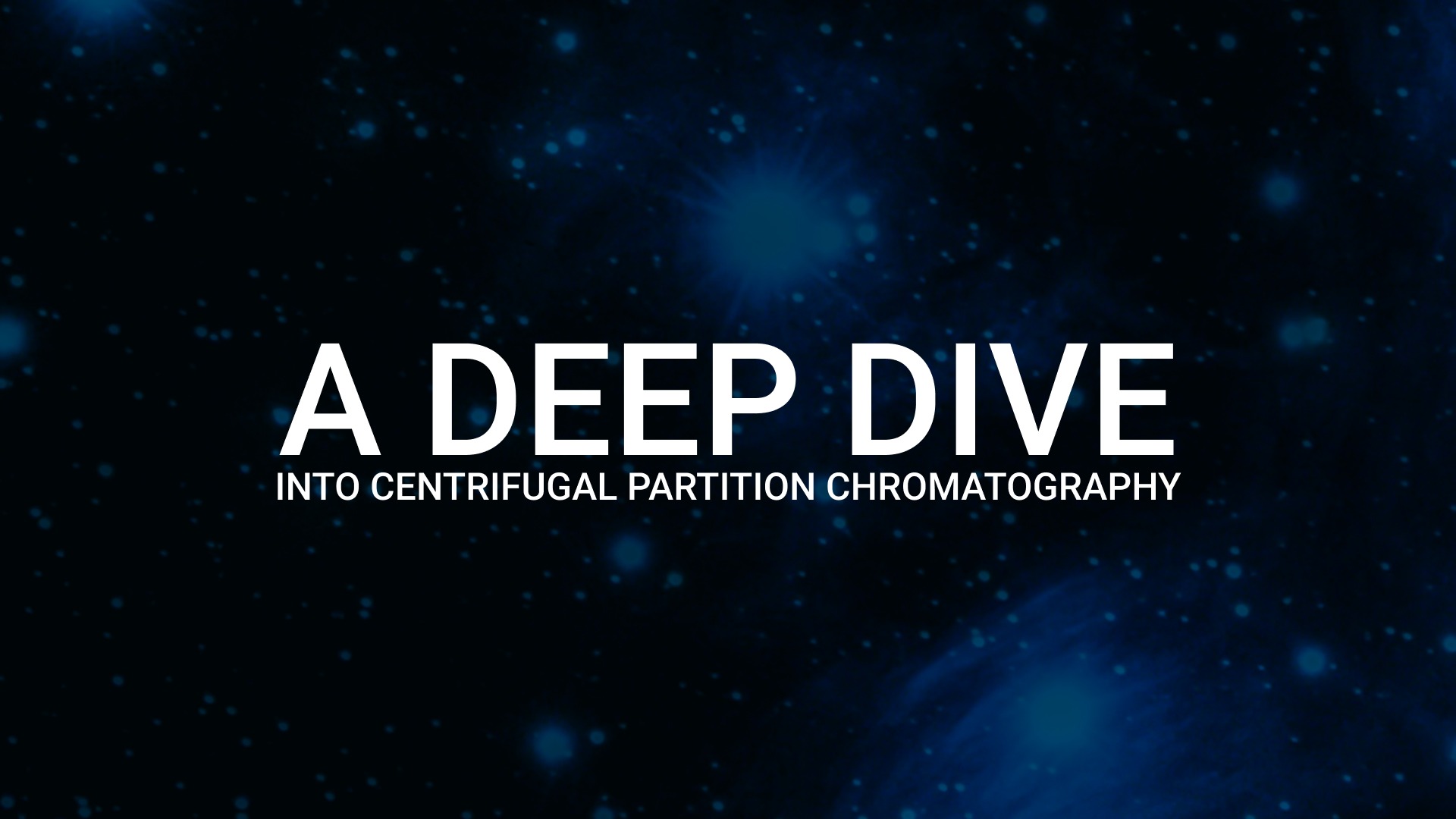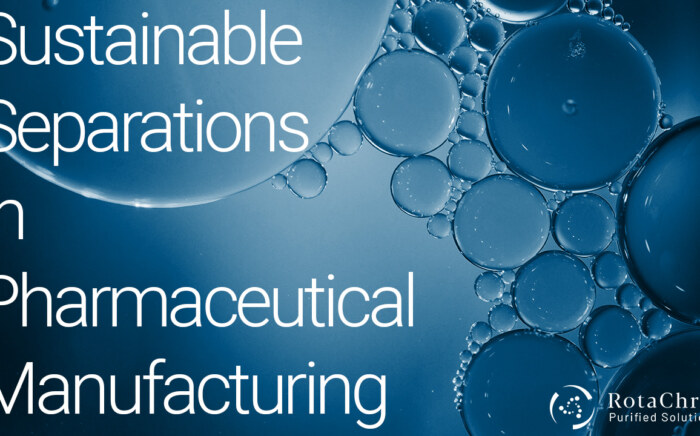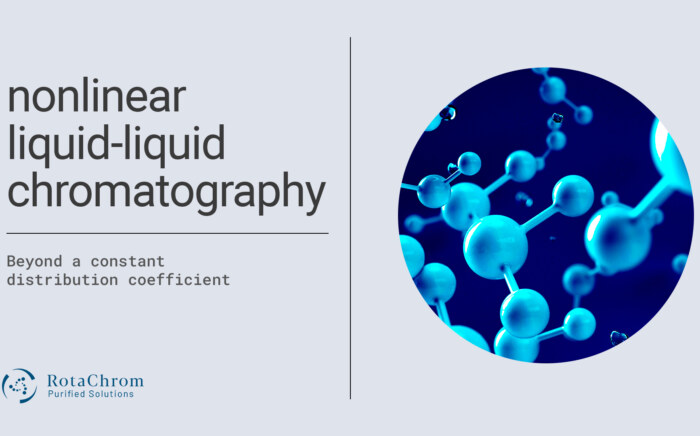Increasing separation efficiency by pH adjustment in Centrifugal Partition Chromatography
NewsCentrifugal Partition Chromatography (CPC) represents a revolutionary advancement in the field of chromatographic techniques, combining the principles of traditional liquid-liquid chromatography (LLC) with the enhanced force of centrifugation. Unlike conventional chromatography methods that rely on solid columns, CPC utilizes a series of interconnected cells. This innovative approach creates a robust and efficient system, where the liquid stationary phase is held in place by centrifugal force, thereby facilitating highly effective separation processes when it interacts with the mobile phase.
The Advantages of CPC Over Traditional Chromatography
CPC offers significant advantages over traditional chromatographic techniques. One of its primary benefits is the heightened selectivity and efficiency it provides, particularly when dealing with complex mixtures. Traditional methods often struggle with irreversible absorption due to the presence of solid stationary phases. In contrast, CPC’s use of liquid stationary phases eliminates this risk, allowing for precise and repeatable molecular separation. This unique mechanism has broad applications across various industries, including purification, isolation, and remediation processes.
Applications in Isolation, Separation, and Remediation
Isolation: Extracting the Compound of Interest
Isolation in chromatography refers to the extraction of a specific Compound of Interest (CoI) from a complex matrix. This process demands high resolution and the ability to selectively fractionate the desired compound. Achieving successful isolation requires meticulous research and method optimization, especially when dealing with compounds that have diverse physicochemical properties. The precision of CPC makes it particularly effective for isolating CoIs, as it can be fine-tuned to handle the intricacies of different substances.
Separation: Simplifying Complex Mixtures
The goal of separation in chromatography is to simplify a complex input matrix, focusing on isolating at least two Compounds of Interest. This process becomes especially challenging when the CoIs have similar chromatographic characteristics, such as isomers. CPC’s superior resolution capabilities are crucial in overcoming these challenges, enabling distinct separation of compounds that would otherwise be difficult to isolate using traditional methods. The ability to differentiate between similar compounds ensures that the final output is of high purity and quality.
Remediation: Ensuring Safety and Compliance
Remediation in chromatography aims to remove unwanted components from a sample or matrix. This process is vital for ensuring the efficiency and safety of the CoI, as well as for minimizing potential risks to human health and the environment. Remediation targets hazardous, carcinogenic, environmentally polluting, or legally restricted impurities. By effectively eliminating these detrimental components, CPC ensures that the end product is refined, safe, and compliant with regulatory standards. This is particularly important in industries such as pharmaceuticals, where the presence of impurities can have serious implications.
The Interconnected Roles of Isolation, Separation, and Remediation
Isolation, separation, and remediation are interconnected yet distinct processes within the realm of chromatography. Each plays a crucial role in guiding the path toward a purified and refined outcome. Isolation focuses on extracting specific compounds, separation aims to distinguish and simplify complex mixtures, and remediation ensures the removal of harmful impurities. Together, these processes leverage the strengths of CPC to achieve superior results in purification and refinement.
Conclusion
Centrifugal Partition Chromatography (CPC) is a groundbreaking technique that offers unparalleled advantages in the field of chromatography. By integrating the principles of traditional liquid-liquid chromatography with the force of centrifugation, CPC provides a robust and efficient system for molecular separation. Its applications in isolation, separation, and remediation highlight its versatility and effectiveness across various industries. As technology and methodologies continue to advance, CPC is set to play an increasingly vital role in achieving high-purity outcomes and ensuring the safety and quality of products.



